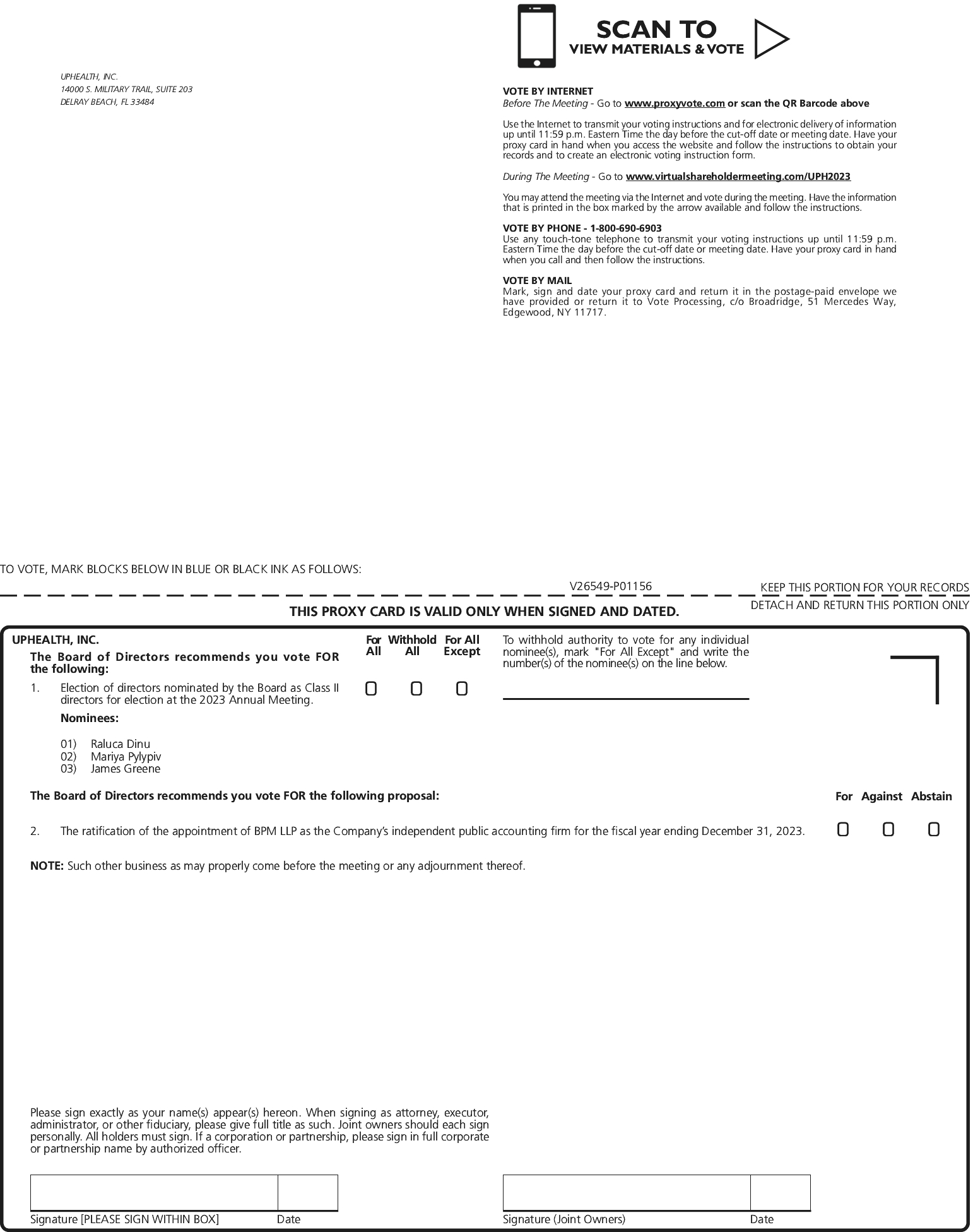Mr. Meckey complies with all obligations set forth in the CEO Amended and Restated Employment Agreement that survive termination of his employment as provided therein (and contingent upon effectiveness of the Release Agreement), the Company and Mr. Meckey have agreed that he shall be entitled to receive all amounts payable pursuant to the provisions of the CEO Amended and Restated Employment Agreement with respect to termination without Cause or for Good Reason and in connection with a Change in Control, which have not already been paid to Mr. Meckey in accordance with clauses (a) through (f) of the immediately preceding paragraph.
In exchange for and in consideration of the severance benefits provided to Mr. Meckey pursuant to the termination provisions of the CEO Amended and Restated Employment Agreement, and subject to the terms and conditions of such termination provisions in all respects, Mr. Meckey has agreed to a general release of claims in favor of the Company, and upon the effectiveness of the Release Agreement, Mr. Meckey shall have voluntarily released and forever discharged the Company, its affiliated and related entities, its and their respective predecessors, successors and assigns, its and their respective employee benefit plans and fiduciaries of such plans, and the current and former members, managers, partners, directors, officers, shareholders, employees, attorneys, accountants and agents of each of the foregoing in their official and personal capacities (collectively referred to as the “Releasees”) generally from all claims, demands, debts, damages and liabilities of every name and nature, known or unknown (collectively, “Claims”) that, as of the date of the Release Agreement, Mr. Meckey has, ever had, now claims to have or ever claimed to have had against any or all of the Releasees. Such general release of Claims includes, among other things (and without implication of limitation), the release of all Claims: (a) relating to his employment by and termination from employment with the Company, including any Claims of breach of contract, wrongful discharge or violation of public policy; (b) of discrimination or retaliation under federal, state or local law, including, without limitation, Claims of age discrimination or retaliation under the Age Discrimination in Employment Act of 1967 (“ADEA”), Claims of disability discrimination or retaliation under the Americans with Disabilities Act, and Claims of discrimination or retaliation under Title VII of the Civil Rights Act of 1964; (c) under the California Family Rights Act, the California Labor Code, the California Workers’ Compensation Act, and the California Fair Employment and Housing Act; (d) under the Minnesota Human Rights Act (provided that Mr. Meckey may rescind the release of claims under such law within 15 calendar days of the execution of the Release Agreement by delivering a written notice of rescission to the Company as provided in the Release Agreement), the Minnesota Equal Pay for Equal Work Law, Minnesota health care worker whistleblower protection laws, the Minnesota family leave law, and Minnesota personnel record access statutes; (e) under any other federal or state statute or constitution or local ordinance; (f) of defamation or other torts; and (g) for damages or other remedies of any sort, including, without limitation, compensatory damages, punitive damages, injunctive relief and attorney’s fees; provided, that the foregoing release shall not affect Mr. Meckey’s rights (i) under the Release Agreement, (ii) to the Accrued Benefit, (iii) to contractual or other legal right to indemnification under any written indemnification agreement with the Company, governance documents of the Company or under applicable law, (iv) to any claim that cannot be waived under applicable law or (iv) under any applicable director and liability insurance policy. Furthermore, Mr. Meckey has agreed not to accept damages of any nature, other equitable or legal remedies for his own benefit or attorney’s fees or costs from any of the Releasees with respect to any Claim released pursuant to the Release Agreement.
In respect of the foregoing general release of Claims, and as a material inducement to the Company to enter into the Release Agreement, Mr. Meckey has represented in the Release Agreement that he has not assigned any Claim to any third party. In addition, Mr. Meckey (i) has represented that, other than the consideration set forth in the Release Agreement, the Company has paid or provided all salary, wages, bonuses, accrued vacation/paid time off, premiums, leaves, housing allowances, relocation costs, interest, severance, outplacement costs, fees, reimbursable expenses, commissions, stock, stock options, vesting and any and all other benefits and compensation due to him, and (ii) has agreed that he is not entitled to any wages, salary, commissions, vacation, equity, bonuses, or any other compensation or benefits from the Company or any of its affiliates, except as is expressly set forth in the Release Agreement.
In addition to the general release of Claims described above, Mr. Meckey has acknowledged and agreed that (a) he is waiving and releasing any rights he may have under the ADEA as of the Effective Date, and such waiver and release is knowing and voluntary (and shall not apply to any rights or claims that may arise under the ADEA following the Effective Date), and the consideration given for such waiver and release is in addition to anything of value to which Mr. Meckey was entitled pursuant to the CEO Amended and Restated Employment Agreement; (b) he has been advised in the Release Agreement (i) to consult with legal counsel prior to his execution thereof, (ii) that he has 45 days within which to consider the Release Agreement, (iii) that he has been provided certain information to consider in making the Release Agreement, including the class, unit, or group of individuals covered by the reduction in force applicable to his termination, the eligibility factors for such reduction in force, and the job titles




